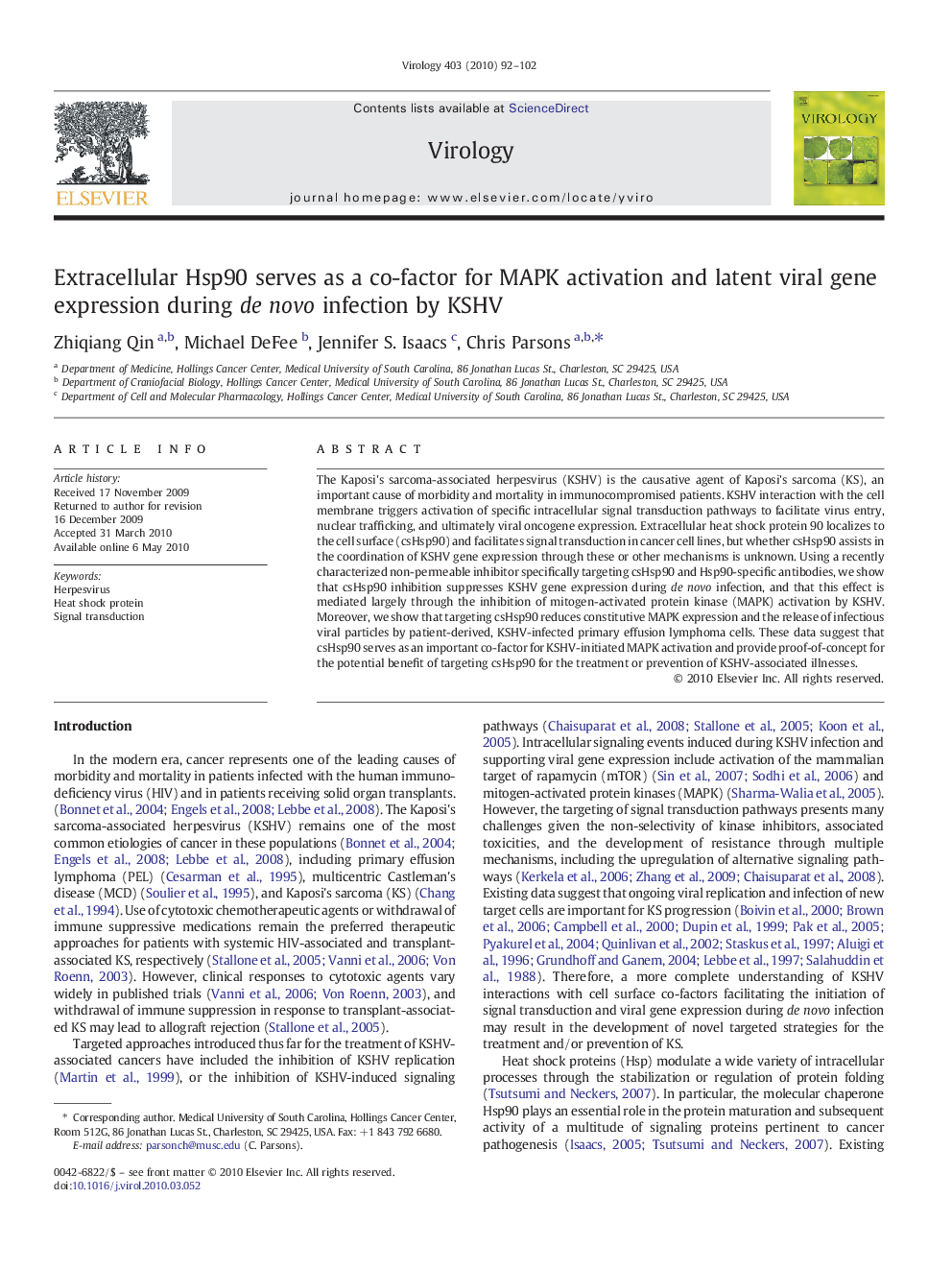| Article ID | Journal | Published Year | Pages | File Type |
|---|---|---|---|---|
| 3425535 | Virology | 2010 | 11 Pages |
The Kaposi's sarcoma-associated herpesvirus (KSHV) is the causative agent of Kaposi's sarcoma (KS), an important cause of morbidity and mortality in immunocompromised patients. KSHV interaction with the cell membrane triggers activation of specific intracellular signal transduction pathways to facilitate virus entry, nuclear trafficking, and ultimately viral oncogene expression. Extracellular heat shock protein 90 localizes to the cell surface (csHsp90) and facilitates signal transduction in cancer cell lines, but whether csHsp90 assists in the coordination of KSHV gene expression through these or other mechanisms is unknown. Using a recently characterized non-permeable inhibitor specifically targeting csHsp90 and Hsp90-specific antibodies, we show that csHsp90 inhibition suppresses KSHV gene expression during de novo infection, and that this effect is mediated largely through the inhibition of mitogen-activated protein kinase (MAPK) activation by KSHV. Moreover, we show that targeting csHsp90 reduces constitutive MAPK expression and the release of infectious viral particles by patient-derived, KSHV-infected primary effusion lymphoma cells. These data suggest that csHsp90 serves as an important co-factor for KSHV-initiated MAPK activation and provide proof-of-concept for the potential benefit of targeting csHsp90 for the treatment or prevention of KSHV-associated illnesses.
